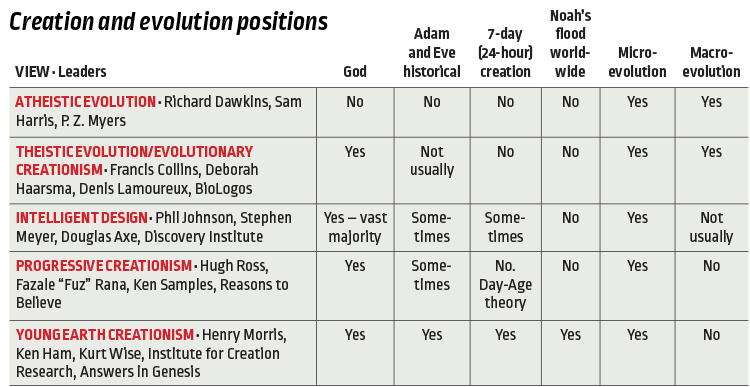Diverse Christians unite in challenging atheistic evolution
Big books are seldom bombshells. The thousand-page tome Theistic Evolution: A Scientific, Philosophical, and Theological Critique (Crossway, 2017) is a remarkable exception. It was featured at the annual meeting of the Evangelical Theological Society this past November in Rhode Island. Hundreds of scholars, including yours truly, attended a three-hour presentation on the book’s scathing critique of the view Darwinism is compatible with Christian faith and genuine science.
The battle line that emerged at the conference is the same one that surfaced in 1859 when Charles Darwin released his famous On the Origin of Species. Then and now Christians separate into two camps – those who believe God used macroevolution (yes, Virginia, we descended from an ape ancestor about 7 million years ago), and those who abhor that theory (no, Virginia, God brought us here through special creation).
Of course the debate is more complex than the two polarized views imply. There are, after all, theological and scientific arguments to consider (see chart).
Should we despair because Christians can’t agree on something as important as the origins of humanity? No, and here’s why.
First, nothing is to be gained by pretending all the issues in the debate are simple and clear cut. In this regard Ken Ham, probably the most famous of young earth advocates and one not prone to uncertainties, deserves praise for admitting some evidence is problematic for his position. Likewise Denis Lamoureux, a theistic evolutionist who teaches at the University of Alberta, is great at noting areas of legitimate debate (a humble trait for a guy with three earned doctorates).

Second, it’s crucial to note leaders in the four main Christian camps treat each other as Christian brothers and sisters, even while disagreeing sharply. This unity in Christ can be seen in the Crossway book and in two other new books: Four Views on Creation, Evolution, and Intelligent Design (Zondervan, 2017) and Old Earth or Evolutionary Creation?: Discussing Origins with Reasons to Believe and BioLogos (IVP Academic, 2017). The accord comes from agreement on the doctrinal and spiritual essentials of the Christian faith.
Third, leaders in all Christian camps agree that one of the main threats to faith in our day is the pervasiveness of atheistic evolution. Therefore the use of Darwin (who, contrary to rumour, didn’t repent of evolution on his deathbed) to deny God is the greatest tragedy in popular evolutionary dogmatism, and this in turn often leads to bigotry against creationists of all stripes (see the news reports about the shoddy treatment of intelligent design scientists like Stephen Meyer by establishment evolutionists).
Leaders in all Christian camps agree that one of the main threats to faith in our day is the pervasiveness of atheistic evolution. Fourth, we should keep our eyes wide open to all the astounding evidence that the heavens and the earth were designed to support God’s creatures. See The Privileged Planet: How Our Place in the Cosmos Is Designed for Discovery (Regnery, 2004) and Undeniable: How Biology Confirms Our Intuition That Life Is Designed (Harper, 2016).
Personally I love gathering data on the design of the human body like this: "The information to build a human infant, atom by atom, would take up the equivalent of enough thumb drives to fill the Titanic, multiplied by 2,000" (from a TED Talk by Riccardo Sabatini).
Sabatini also notes the genome of Craig Venter, a famous scientist who allowed his body to be mapped, adds up to 262,000 pages.
No doubt we are "fearfully and wonderfully made" (Psalm 139).

James A. Beverley is professor of Christian thought and ethics at Tyndale Seminary in Toronto. Read more of these columns at www.FaithToday.ca/ReligionWatch. Links for organizations mentioned in the chart: BioLogos, Discovery Institute, Reasons to Believe, Institute for Creation Research, Answers in Genesis.